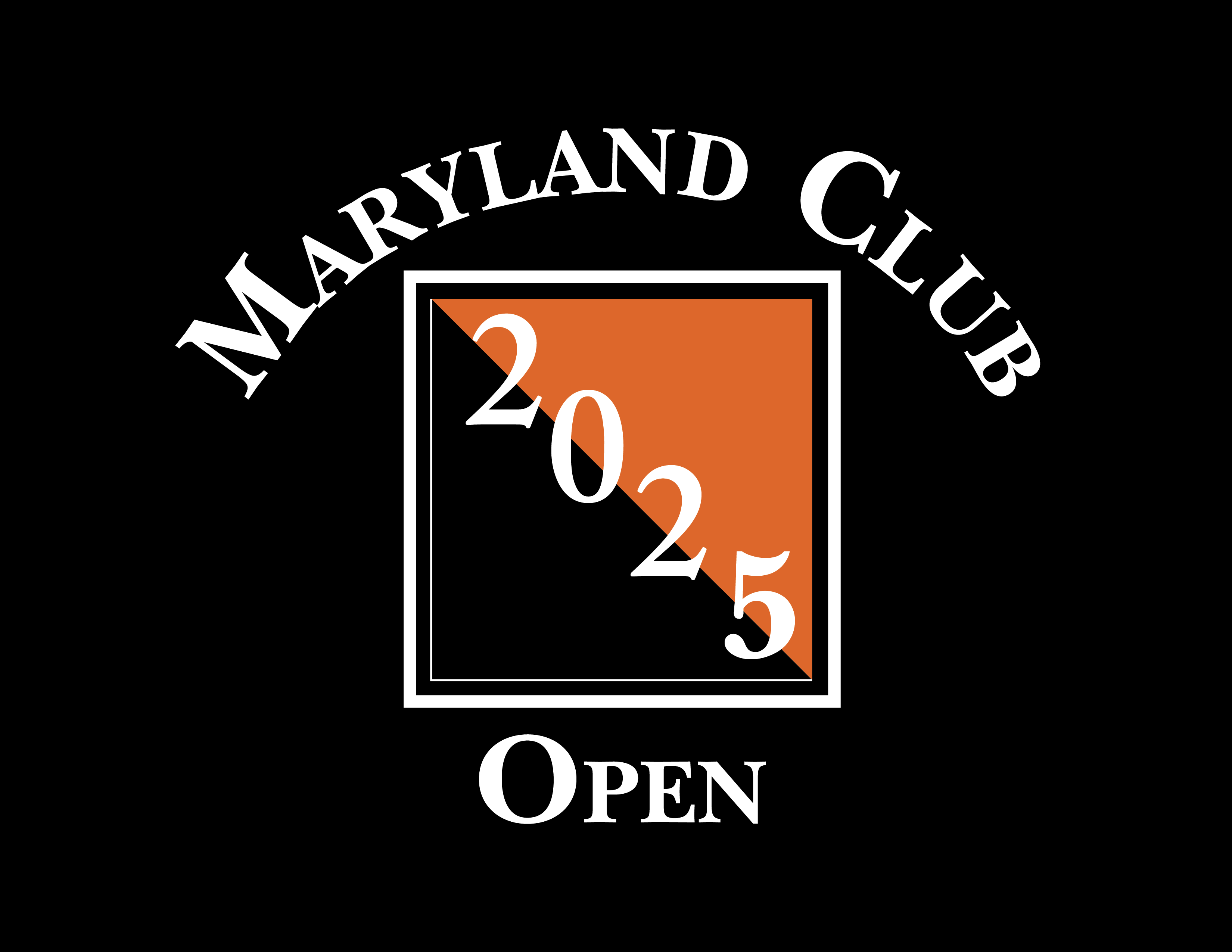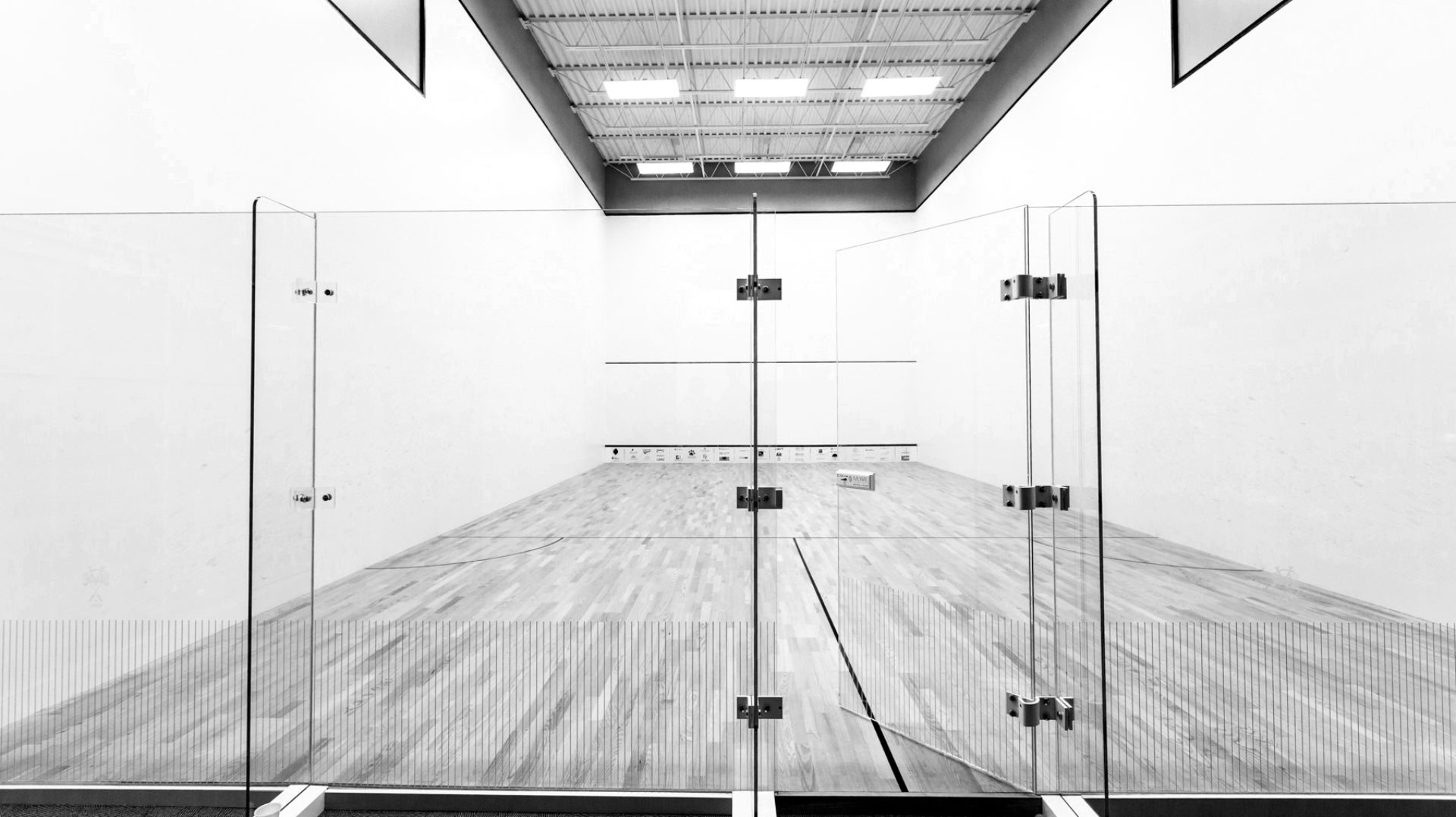The Maryland Club Open, which marks its tenth anniversary this weekend (there was a one-year hiatus in 2009 with Baltimore hosting the U. S. National Doubles the following spring), is already the sixth longest-tenured event on the North American pro doubles tour, trailing only the David Johnson Memorial event in Brooklyn, the North American Open, Boston, Wilmington and the Jim Bentley Cup in Toronto, all of whom have been stand-bys on the schedule for more than two decades. The Maryland Club courts have borne witness to some extraordinary results since its dramatic debut on Halloween night in 2003, by the end of which two of the top four seeds were sent packing and a third barely survived. Enough landscape-transforming trends were either stopped, marked or jump-started on Eager Street to have given the tournament a character and dynamic all its own, and on this landmark occasion it seems fitting to list them and elaborate on their impact on all that followed.
As noted, the very first main-draw match of the inaugural edition saw third seeds Blair Horler and Clive Leach, who had pounded and sharp-shot their way to the Kellner Cup title the previous spring, roaring back from a two-love deficit against long-time No. 1’s Damien Mudge and Gary Waite, promptly eliminated, in straight sets no less, by qualifiers Alex Pavulans and Chris Deratnay, following which almost immediately thereafter fourth seeds Josh McDonald and Viktor Berg were routed in their fifth game against Jamie Bentley and Preston Quick. Second seeds Willie Hosey and Michael Pirnak barely escaped a similar fate in their match with qualifiers David Kay and Chris Walker, who pushed the issue to 13-14 in the fifth before Kay rifled a forehand rail that rang loudly off the tin. Reprieved in this fashion, Hosey and Pirnak then beat Quick/Bentley in the semis before being over-run by Waite and Mudge in the final.
The latter tandem would repeat as champions both in 2004 (en route to going undefeated for that entire 2004-05 campaign) and 2005, when they would extend their string of consecutive-tournaments-won to 19 respectively (dating back to a January 2004 final-round loss in Boston to 2004 Maryland Club Open finalists McDonald/Berg), a skein that would end right here in Baltimore, as Quick and his new partner Ben Gould, who lost the 2005 final to Waite/Mudge, would reverse that outcome when the same two teams met just a few weeks later in the Big Apple Open final, where Gould and Quick would prevail, 15-14 in the fourth.
The next several versions of the Maryland Club Open saw results that would augur transforming changes in professional men’s doubles squash on this continent. In 2006 Waite and Mudge, who had enjoyed yet another dominant 2005-06 season, their seventh straight, won the first game of their semifinal match against new partners Gould and Price and stood at game-ball to go up two-love in the second, when Price delivered an untouchable inside-out forehand roll-corner that completely fooled Waite, after which Price/Gould romped through the remaining two games and rose superior to another new partnership, namely Quick and John Russell, in the final. Price and Gould would go on to a sensational 2006-07 season, winning a tour-leading five tournaments, including the Briggs Cup and North American Open, and displacing Mudge and Gould as the No. 1 team.
They therefore entered the 2007 Maryland Club Open, the second stop on the pro-doubles schedule that year, as imposing favorites, and their semifinal loss a few weeks earlier in St. Louis, when they had let a 2-1, 14-9 lead slip away in an eventual five-game loss to Leach and Chris Walker, was regarded as something of a fluke. They would get their chance at revenge when the two teams met Sunday afternoon in the final, in which Price and Gould earned a two games to one advantage and took a small lead in the fourth game as well. But Leach and Walker, semifinal winners a day earlier against debuting partners Mudge and Berg, came up with some compelling squash in the closing 15-12, 15-11 laps to capture their second consecutive ISDA title and briefly advance to the top spot in the rankings.
Remarkably, the two teams that Walker/Leach sequentially defeated that weekend in Charm City, namely Mudge/Berg and Price/Gould, would subsequently embark upon a run lasting all the way through the 2009-10 season, in which one or the other would win all 34 sanctioned ranking tournaments on the ISDA schedule during those nearly three years, with each winning 17 events. The two teams met in 17 of those 34 finals, with Price and Gould (who notched the 2008 Maryland Club Open with a final-round win over a Russell/Quick duo that had ousted Mudge and Berg in the semis) holding the slimmest possible 9-8 edge in what became the most enduring, intriguing and evenly matched rivalry in the history of the ISDA.
This two-team aristocracy might well have extended even longer were it not for the decision that Mudge and Gould reached during the summer of 2010 to join forces rather than continue their many years of beating each other’s brains out. An undefeated (12 for 12 tournaments, won-lost record of 38-0) 2010-11 season followed, though in their first-ever match of their partnership, a Maryland Club Open quarterfinal, Walker and Mark Chaloner took a 1-0, 7-4 lead. But Mudge and Gould would then blast their way through that game and the eight that followed (the last three coming in their final with Quick and Russell) and never looked back, culminating that season by winning the World Doubles in Toronto by surmounting one of their few late-match deficits in their final with Russell and Leach, who led two-one before being overtaken in the last two games.
Mudge and Gould would successfully defend the Maryland Club Open crown in 2011,which was played as a three-team round-robin, and 2012 (the debut event for the newly formed Squash Doubles Association, on which longtime Maryland Club head pro Andrew Cordova serves as Director Of Development), which for sheer depth of the competition at all levels of the draw may have been the most memorable holding of this tournament in its history. All but one of the seven main-draw matches either went to at least a fourth game or had one or more 15-14 tallies, as was also the case in five of the seven matches contested in the qualifying flights. Russell and former PSA No. 1 John White saved a third-game triple-match-point against them and wound up pushing Quick and his new partner Matt Jenson to 13-all in the fifth, at which juncture White unaccountably slipped to the floor in the middle of the ensuing exchange, costing his team that point and giving his opponents the momentum and another match-ball, which they promptly converted. Quick and Jenson then played Mudge and Gould (first-round 3-0 winners over Walker/Chaloner) much closer in the semis than the 15-9, 12 and 11 score implies, staying even through the first half of each game before the eventual champions made swift three- and four-point runs and closed each game from there.
The bottom half also had a 15-13 fifth-game denouement, this one involving a match-up between debuting teams; Greg Park and Jonny Smith won a 15-14 third game to go up 2-1 against Price and Leach, who, however, survived due to a winner off Price’s racquet at 14-13 in the fifth game. They then lost in four to Manek Mathur and Yvain Badan, whose first four evenly-divided games vs. Mudge and Gould were all decided by three points or less, but the latter pairing then raced out to a 7-1 lead in the fifth, sealing the 15-7 outcome.
Mudge has therefore won this tournament a record six times, its first three holdings with Waite and its last three with (now five-time champ) Gould sandwiching, however, three straight losses in the middle years in the semis, making the Maryland Club Open the only stop on the schedule in which Mudge has been stopped that many consecutive times short of the final. Gould has reached the last seven Maryland Club Open finals, with three different partners, namely Quick (a four-time finalist, including with Russell in 2006, 2008 and 2010) in 2005, Price for three-straight years from 2006-08 and Mudge the last three years. The Maryland Club Open has become a one of those stops that SDA players circle on the calendar, and a pivot point for the event-filled schedule that follows, and, if history is any guide, the 2013 edition will enhance the substantial tradition that the tournament has already firmly established.
Rob Dinerman has written the team profiles and major articles for every Maryland Club Open in the history of this tournament and his “History Of The U. S. National Doubles In Baltimore” was the feature article in the National Doubles Program when that event was held in Baltimore in March 2010. The winner of the Mitch Jennings Cup and the Tim Chilton Cup during the 2009-10 season (with Chris Walker and Ed Chilton as his respective partners), Dinerman was ranked as high as No. 10 on the WPSA pro hardball tour, winning more than 50 Open hardball tournaments and reaching the finals of the U. S. Nationals in 2004 and 2005. Currently the editor of the Dailysquashreport.com web site, he has been the major writer for the men’s SDA tour for the past 12 years and for the women’s WDSA tour throughout that organization’s six-year history. Excerpts from his prep-school memoir “Chasing The Lion,” as well as a number of his squash archival articles, can be found on his web site, www.robdinerman.com.

